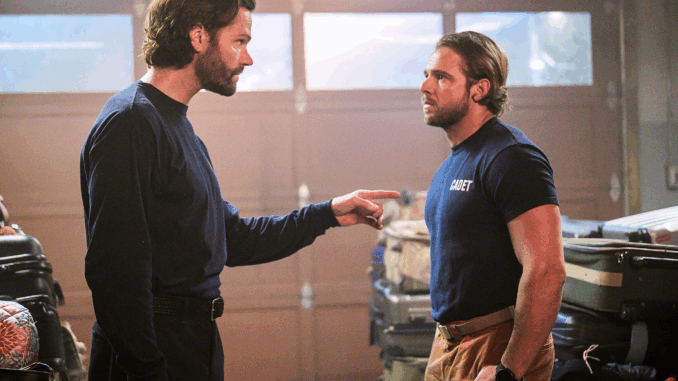
More Than Destruction
In Fire Country, fire isn’t just a physical threat. It’s a metaphor—burning away the old to make room for the new. The flames that rage through Edgewater and the forests beyond aren’t simply disasters. They are transformative forces, echoing ancient myths of fire as both destroyer and purifier.
From the very first episode, the show links fire with change. Bode enters the prison fire program not to escape punishment, but to find renewal. Each blaze he fights becomes a crucible—testing his character, confronting his demons, and forging him into someone new.
Mythological Roots of Fire as Purification
In many cultures, fire symbolizes rebirth. The Phoenix, the legendary bird that dies in flames and rises from ashes, is an apt symbol for Bode and others in Fire Country. The prison fire camp, with its harsh environment and extreme danger, functions like a modern-day purgatory. It’s not just a punishment—it’s a rite of passage.
The show subtly weaves this symbolism into its cinematography: long shots of smoke curling into the sky, charred earth later dotted with regrowth, glowing embers illuminating characters’ faces in quiet moments of reflection. These images suggest that out of ruin, something stronger can emerge.
The Fireline as a Spiritual Path
For the inmates, firefighting is more than work—it’s a kind of spiritual practice. Each call is a confrontation with mortality. The line between life and death is literal, not metaphorical. In this space, every decision matters. Every moment is charged with meaning.
This intensity strips away the masks people wear. When you’re on the fireline, it doesn’t matter if you’re a criminal or a hero. You are judged only by your actions, by your courage, and by your willingness to risk your life for another. In this way, fire becomes a great equalizer and purifier.
Flames of Family and Community
Fire also reshapes relationships. Sharon and Vince, whose marriage is strained by grief and professional stress, often find themselves reconnecting in the midst of danger. Their shared history as fire veterans gives them a unique language, one that comes alive when the sirens wail.
Similarly, Gabriela’s relationship with Bode ignites—not just romantically, but spiritually—when they’re united by a crisis. In the heat of the moment, barriers drop. Fire becomes a clarifier, revealing true priorities and testing emotional bonds.
Destruction as a Path to Growth
It’s easy to see fire only as a destructive force. But Fire Country shows us the other side: after fire comes renewal. Just as forests depend on occasional wildfires to regenerate, the characters often need to hit bottom before they can rise.
Manny’s relapse, Sharon’s health scare, Jake’s guilt—these are personal wildfires. Painful, consuming, but ultimately necessary. Without them, transformation wouldn’t be possible.
Conclusion: Baptism by Fire
In Fire Country, fire is not just a hazard—it’s a holy force. It reveals, refines, and reawakens. The series taps into an ancient truth: that sometimes, to find ourselves, we must first be broken down by something fierce and uncontrollable. Only then can we emerge—scarred but stronger—from the ashes.

